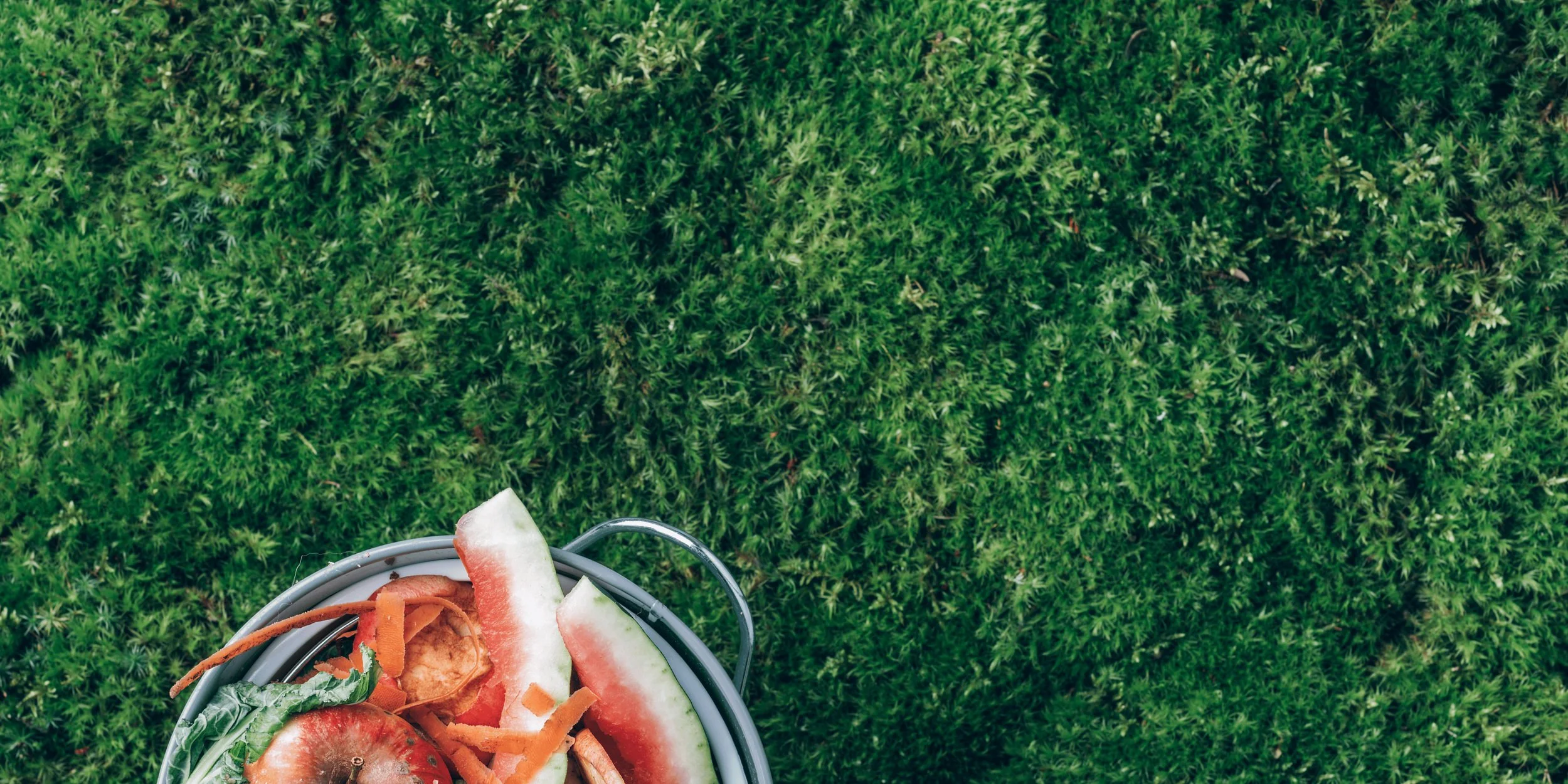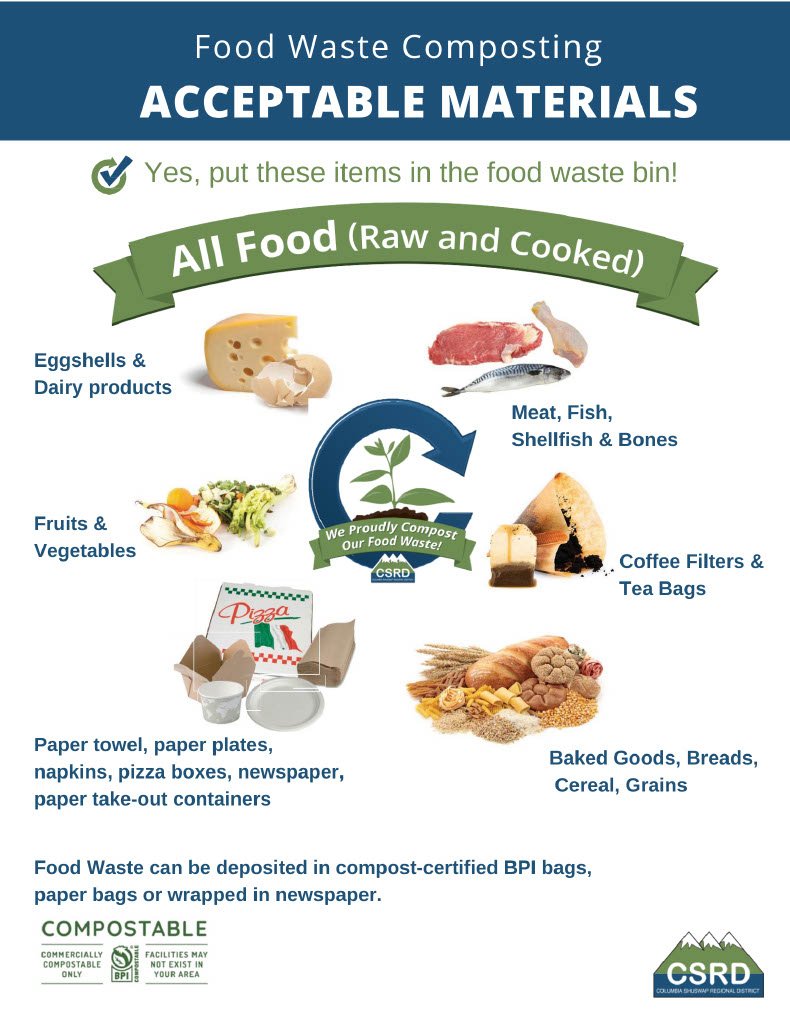Local Updates
The Columbia Sushwap Regional District (CSRD) opened the Revelstoke Composting Facility at the local landfill in fall 2022. As of the summer of 2023 there are two options for composting: self-hauling and waste management pick up. A new fee structure for commercial waste hauling is being implemented on May 1st 2024, businesses will be required to pay $270/tonne for mixed loads. Mixed loads account for any waste loads with 10% or more food waste. Loads of compost will cost 120$/tonne. To avoid higher waste fees businesses should sort food waste and utilize the new composting options.
The LFI is tasked with educating and supporting Revelstoke as it transitions to a community that composts! If you have any questions, want to learn more, or get help implementing composting at your location please reach out to the compost education coordinator at:
compost@revelstokelocalfood.com
Self Haulers:
There are food waste collection bins available at the Revelstoke Landfill. Businesses and Residents can drop off food waste in these bins for a minimum charge of $10 or at a rate of $120/tonne.
Waste Management Customers:
Waste Management (WM) in Revelstoke is currently able to provide 35 gallon (~130 L) compost bins to WM customers. If you are a WM customer you can contact your representative to discuss options for your location.
You may contact Christine Smith at Waste Management, if you don’t have a representative, for pricing and details such as bin type and pick-up frequency.
Email: csmith66@wm.com Phone: 250 687 0398
Compost Education
Read more below about food waste, managing food waste, compost, what can go to the Revelstoke compost facility, compost bags, avoiding compost contamination, composting for businesses.
What is Food Waste?
Food waste is inevitable and we are all food wasters. However, it’s in our hands to decide what we do to prevent and reduce food waste.
Food waste is categorized as:
Edible: food that is still good to eat
Inedible: food such as vegetable peels, fruit stones, meat bones, etc.
Waste: food that is spoiled during storage, preparation, display, on grocery store shelves, on customers plates, etc.
Surplus: food that is still edible but will not be sold for various reasons including menu change, overstocking of items, etc.
How Do You Manage Food Waste?
You can reduce, recover, and compost! By following these steps you can save money on groceries or inventory, feed the community with excess food, and create natural fertilizer to grow more food.
What is Compost and Why Do It?
Compost is a natural fertilizer made from food waste! By Composting you fuel the growth of future food. Adding compost to soil to increases nutrient value, crop yields, and plant health. Sorting out compost reduces the volume of garbage sent to landfill and removing organics from landfill reduces greenhouse gas emissions. Methane is generated from organic material so lets keep food waste out of the landfill! Learn more about greenhouse gases and composting here.
What Goes in the Compost in Revelstoke?
Sorting your compost is just as easy as sorting your recycling. Many different items can go to the Revelstoke Composting Facility. You can download the detailed food waste sorting guide below which outlines what is and is not acceptable to put in your compost bin. It is important to remember that biodegradable does not mean compostable. If you are unsure whether or not something can go in the compost it is best to throw it in the garbage. Contamination in compost can result in the whole load ending up in the landfill.
Compost Bags and avoiding Contamination
Any plastic in your compost bin is contamination, even if it says it is biodegradable. So make sure to remove fruit stickers and other labels from items you put in the compost. Food waste can be deposited in compost-certified BPI bags, paper bags, or wrapped in newspaper. Compost-certified BPI bags are currently being sold at the Revelstoke Home Hardware as well as most grocery stores. You can read more about avoiding compost contamination by clicking the button below.
The logo to look for on compost bags.
Composting as a Business
Choose whether you want to drop off compostable material at the Revelstoke Landfill yourself or sign up for the collection service provided to waste management customers.
Select strategic locations where compost bins need to be placed. Think about work flow and where food waste accumulates. Plan for a compost bin next to each garbage bin, within arms reach of work station, and close to the dishwashing area. Decide if you also want to compost used paper towels from the bathrooms.
Find the right bins for your business. Consider your space constraints and number of work spaces when selecting the bins. You might need a few different sizes of containers (eg. a bigger bin in the dishwashing area, small counter top units near prep stations). Think about what type of lids would be practical and make sure that there are liners (compostable bags) available in the size of bin you select.
Buy BPI certified compostable liners for the bins. Using liners will keep things cleaner and make emptying the compost bins easier. Most grocers in Revelstoke (including Home Hardware) sell compostable bags.
Add signage to the bins to clarify acceptable material. Consider laminating the signage to make it waterproof and last longer.
Introduce the program to staff. Ensure your staff understands what goes in the bin and why the program is important.
Follow up with spot checks to make sure the bins are properly used.
Contact
Get in touch to talk composting in Revelstoke at: compost@revelstokelocalfood.com







